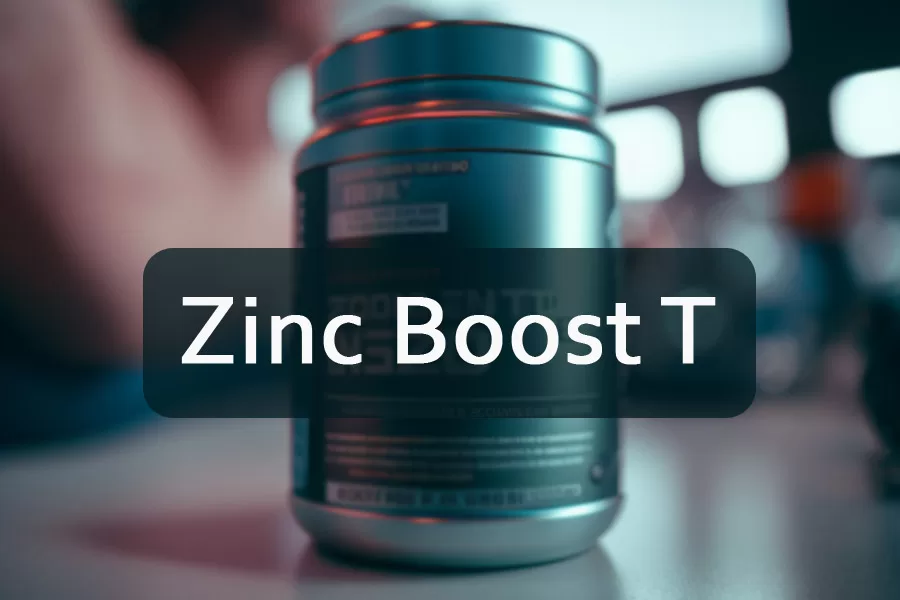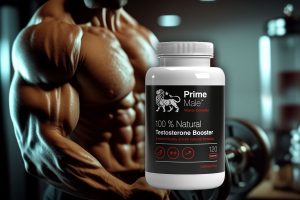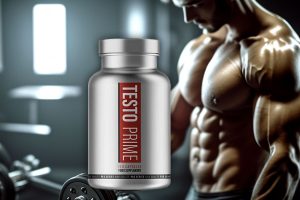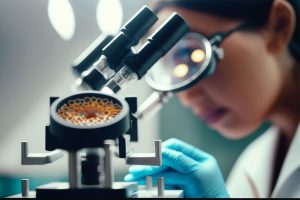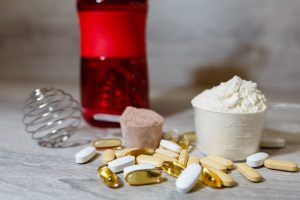The male hormonal system is a quite sophisticated thing. The body thoroughly controls the levels of hormones and changes them according to its needs. The major changes are usually related to the aging process when testosterone levels is starting to decrease slightly every year.
However, a similar situation may happen due to some lack of minerals, vitamins or other nutrients. For instance, there is scientific evidence that low zinc levels are related to a drop in testosterone. Let’s learn more about the role of this mineral in our bodies and its connection to manhood.
Understanding Testosterone
First and foremost, we should understand why is testosterone so important. It is actually a crucial molecule for normal men’s lives because it influences the development and work of the reproductive system, sexual activity, building up of muscles and bones and even brainwork.
Factors influencing testosterone production
Under normal conditions, the body of a man regulates testosterone levels and synthesizes as many molecules as needed. The peak in its concentration is observed in the 20s and it begins to decrease somewhere after 35 years. That is how it happens in the case of the physiological aging process.
However, the following conditions may influence the production of this hormone and decrease its quantity in the blood, namely:
- genetic disorders;
- cancer;
- gland disorders;
- obesity;
- diseases that are accompanied by inflammation;
- HIV;
- some medications;
- lack of nutrients in the diet.
Therefore, it is always necessary to determine the real cause of low testosterone. If there is some disease, it must be cured to improve the situation. The same goes for different types of deficiency. One has to be sure that there is a lack of some minerals and vitamins to replenish it properly and eliminate the problem.
Signs and symptoms of low testosterone levels
How do you know that your body experiences hormonal misbalance? The first symptom is constant fatigue that is not eliminated by sleep or rest. In addition, pay attention to the next conditions:
- lowering of muscle mass and bad results in the gym;
- low libido;
- problems with erections;
- hot flashes;
- difficulties with concentration and decision-making.
Low testosterone influences all areas of life and significantly decreases its quality. Still, it must be diagnosed by a specialist as other diseases also may have similar symptoms.
Therefore, do not neglect to visit the specialist and to do the blood test that will confirm hormonal misbalance.
Zinc and Testosterone Production
Numerous compounds are involved in the functioning of the hormonal system. One of them is zinc. This small mineral is a part of many enzymes and is quite crucial for the body. Moreover, we can get it from food only. That is why the deficiency may occur.
Zinc’s role in the synthesis of testosterone
For now, a few published papers explore the influence of zinc on males. For instance, one recent study revealed that men who received 30 mg of this mineral every dayexperienced an increase in testosterone levels.
Thus, the connection is evident but the scientists still need time to understand the exact mechanism of its action. In any case, the deficiency in this element is always accompanied by low testosterone or vice versa.
How zinc impacts the regulation of testosterone levels
This mineral is a part of many enzymes in the body. Therefore, it is important for the functioning of the liver and immune system. Scientists predict that it also influences directly the cells of the men’s glands and boost testosterone production.
However, more investigations are required for a detailed explanation of this process.
Zinc Deficiency and Testosterone
As we have already mentioned, there is an established connection between low zinc and testosterone. That is not always the cause of hormonal misbalance but it is quite common. Therefore, it is recommended to make a blood test and check levels of minerals and vitamins to make further decisions on treatment.
Symptoms and effects
The signs of this condition are the same as for testosterone lowering and include:
- fatigue;
- lack of stamina and strength;
- low sexual desire and bad performance in the bedroom;
- mood swings and hot flashes;
- problems with concentration, memory and sleep.
In addition, due to the lack of zinc, a person may often experience inflectional diseases as the immune system also suffers from it.
Maintaining Zinc Levels
There are two main ways to replenish this mineral and maintain its levels, namely:
- Including in everyday diet products rich in this microelement. It is not hard to do but one should control the diet and stay sure that it provides the necessary daily amount. The latter is at least 11 mg.
- Adding special dietary supplements to the routine. They are investable for people with deficiencies. In this case, a higher concentration is needed to replenish the lack. Thus, supplements may contain up to 40 mg of this mineral in the daily dosage.
Anyway, you will need some external resources as our bodies cannot produce zinc internally and require a daily amount. Therefore, consider both options and select their proper combination. In addition, do not forget to follow and check your zinc levels to see how the situation changes.
Zinc Supplementation for Boosting Testosterone
Many supplements for men contain zinc due to its influence on the synthesis of male hormones. However, they differ in quantity, so one has to choose carefully and find the most suitable option.
Forms of zinc supplements
In most cases, zinc goes as a component in mixed capsules. Sometimes, it can be used in powders. Solid dosage forms are preferable for this element as they ensure its bioavailability. This means that in this form the body is able to digest zinc and include it in the metabolic processes.
Daily dosage
The daily dose is usually between 11 and 40 mg. The lower limit represents the required daily dosage for a healthy life. The upper limit is established for those who suffer from deficiency and need more. This quantity does not give any side effects and helps to restore the needs of the body.
Sometimes supplements contain higher concentrations. However, there is no scientific evidence that such an approach helps to cope with the problem faster. On the contrary, a bigger amount may cause toxic and unpleasant side effects. Thus, it is better to follow general recommendations.
Potential side effects
Side effects from utilizing zinc-containing supplements are quite rare. Still, sometimes patients report the following issues:
- headache;
- nausea;
- vomiting;
- diarrhea;
- cramps in the abdominal region.
They may appear during the first weeks of the intake of the supplement and should disappear on their own. If you feel the disturbance and the unpleasant symptoms do not fade, stop the intake and consult your healthcare provider.
Natural Food Sources of Zinc
In addition, there are many products rich in this microelement. It is advisable to include them in your daily diet. All these foods are healthy and will contribute to your overall health positively not to mention the rise of testosterone levels.
List of zinc-rich foods
The most common foods that are recommended for those who are looking for natural zinc sources include:
- oysters and crabs;
- beef, chicken and pork;
- cereals, oatmeal and bread;
- beans;
- nuts.
Furthermore, these products are also rich in essential amino acids and other vitamins and minerals. Therefore, everyone is able to compose a proper diet from them and stay sure that he gets enough zinc. The required daily amount is 11 mg in case there is no deficiency. When the lack is observed, it is better to restore it with supplements that contain higher concentrations.
Balanced diet
Altogether, it is important to care about your diet and select those products that bring health and strength. The usual recommendations are as follows:
- Include enough sources of proteins of animal origin;
- Make your diet rich in vegetables and fruits;
- Drink enough pure water;
- Exclude processed food, too salty and fried products;
- Avoid drinking too much alcohol and smoking.
These are common pieces of advice that are not always easy to follow. However, keep in mind that a balanced diet helps to maintain testosterone levels and slows down the disturbing signs of the aging process. Thus, do not neglect this issue and create your own diet that will suit your taste and bring you all the important nutrients for a healthy life.
Summary
Altogether, there is a scientifically proven connection between zinc and testosterone levels. Even while scientists are still studying the exact mechanisms of action and influence, we can already benefit from this knowledge. First, check your zinc levels and find out whether there is a need to replenish them. If this is your case, select a high-quality supplement and make changes to your everyday diet.
Keep in mind that zinc is necessary not only for your hormonal balance. Thus, it is crucial to maintain its levels to avoid many health issues.
FAQ
Does zinc boost testosterone?
Yes, there is a scientifically established connection between this mineral and hormonal balance in men. Thus, taking supplements in case of deficiency helps to solve this problem.
How much zinc to increase testosterone?
The average daily dose is 11 mg. In the case of lack of this nutrient, one can take more but there is an upper limit of 40 mg per day.
Does 50mg of zinc boost testosterone?
Such a concentration can lead to toxic effects. That is why it is recommended to use no more than 40 mg. This quantity is enough to restore the deficiency and provide the body with the necessary concentration.
Is zinc good for lowering testosterone?
Yes, this mineral positively influences testosterone production. Check whether you lack it before taking the supplements.

